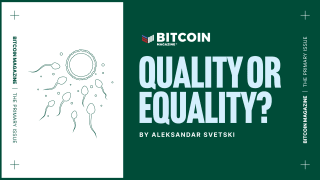
Over one year ago, the launch of Erik Voorhees’ SatoshiDice marked the moment that Bitcoin gambling took its first major step into the mainstream. The site offered a level of convenience unmatched by any Bitcoin gambling site – indeed, any online gambling site regardless of payment method, in history: users send money to a Bitcoin address, and if they win they immediately get more money back. The site was an instant hit, rapidly growing to such a point that roughly 50 of all transactions on the Bitcoin network were to or from its addresses. By the beginning of 2013, the site was earning over $300,000 per month, and even as the price of Bitcoin began its meteoric rise at the start of the year the value of the site’s BTC-denominated shares barely budged.
Now, however, Bitcoin gambling is growing to be much more than just SatoshiDice. Of couse, many old-time gambling sites like BitZino and Seals with Clubs have been providing alternatives to SatoshiDice all along, but in the opening months of 2013 the massive success of Erik Voorhees’ juggernaut has prompted dozens of people to come up with alternatives. We now have the roulette-style wheel games SatoshiCircle and most recently BitcoinSpin, the minefield Satoshi Karoshi, the SatoshiDice clone SuzukiDice offering half the fees of the original, and the lottery BitMillions, and new sites are opening practically every week. What is more interesting than just the number of sites, however, is that so many of these second-tier gambling sites are seeing large amounts of bets and attention – such large amounts, in fact, that it may no longer be appropriate to call them second tier.
Case Study: JustDice
JustDice is a gambling site that first opened in June 2013, offering a form of gameplay similar to SatoshiDice, but using a more traditional deposit and withdraw system instead of requiring users to make a transaction for each bet. Some find SatoshiDice’s “transactions are bets” approach highly convenient, but it is not for everyone; some dislike it because they want to make many bets at a time and sending a transaction each time is actually less efficient than clicking a button (both in time spent and transaction fees), and others criticize it for its impact on the Bitcoin system as a whole – specifically, for “polluting” the blockchain. SatoshiDice’s addresses are currently responsible for roughly a quarter of all transactions that have ever taken place, adding over two gigabytes to the amount of storage space that every fully participating Bitcoin node needs to operate. JustDice, on the other hand, contributes to blockchain bloat only when users deposit and withdraw. Finally, JustDice also seeks to outcompete SatoshiDice on the house edge: while SatoshiDice takes an average of 1.9 from all bets as profit, JustDice is calibrated to take 1, making gambling on JustDice twice as cheap.
To play JustDice, you only need to click “Deposit” to get a Bitcoin address to deposit money, send the funds and wait 1 confirmation (usually 0-15 minutes) for the funds to be credited into one’s account. From there you are free to make bets as often as desired. There is a field which allows users set the exact bet amount and winning percentage that they want, and clicking a button is all it takes to make a bet. Withdrawing is equally as simple: just click the Withdraw button, enter and amount and Bitcoin address, and you’re done. But JustDice also has another feature up its sleeve, and one that no other site before it has implemented nearly as elegantly: on-site investing. When you deposit to JustDice, you have the option of adding a portion of your funds to the bankroll, allowing the site to use it to pay out unexpected very large wins if necessary. The more investors the site has, the higher it can safely raise its maximum bet, allowing it to earn greater profits. In exchange, you get a proportional share of whatever profits the site makes – although there is a risk, as if the site loses money you lose too. To cash out your earnings, simply click withdraw and you’re done. No BitFunder shares or stock trading required.
JustDice has proven to be highly successful, earning over 2800 BTC of profit after little over less than two months of operation – roughly half the earnings of SatoshiDice, and the site has already seen over forty million bets – far more than SatoshiDice, although the fact that JustDice is optimized for making a large number of bets one after the other does mean that this is not a very fair comparison. With 40,000 BTC invested, JustDice’s market capitalization currently stands at roughly one third of that of SatoshiDice when the site sold itself earlier in July.
Case Study: SatoshiCircle
SatoshiCircle is a roulette-style wheel game first launched in March 2013 by a team of developers based in Toronto, Canada. The gameplay of SatoshiCircle is simple. When you go to the site for the first time, you are redirected to a personal URL that serves as the key to your account. You can deposit bitcoins to your account by sending money to your personal deposit address, and SatoshiCircle even provides a QR code to make the process easier for players with mobile wallets. The money arrives instantly (for security, it’s the withdrawals that require 2 confirmations). Once you have money in your account, you can then select the amount that you want to bet and click “Spin”. Five seconds later, the spinner stops and depending on where the spinner lands you receive either none, 25, 150, 200 or 300 of the money you bet. Withdrawing is simple – just click “Withdraw Bitcoins” from the menu at the top of the screen, and you will see a form where you can either click on a Bitcoin address you used to deposit to the site, or enter your own. And that’s all there is to it.
Where SatoshiCircle particularly distinguishes itself, however, is in its bells and whistles. “The idea,” the site’s founder explains, “was for a very clean-looking, easy to play, interactive game, which was lacking in the Bitcoin community. There was no gameplay in SatoshiDice, and we wanted to make it interesting and exciting.” Every time you make a bet, in addition to winning and losing bitcoins you also earn a certain number of points. Points can also be earned for making streaks, such as getting nine winning spins in a row. As soon as you reach a certain threshold of points, you unlock additional features such as alternative spinning wheels. One bonus wheel, for example, is essentially a coin flip between getting double one’s bet and losing it, with one small sliver returning .7x to provide the 1.76 house edge, and another wheel offers a 15x jackpot. Whenever you receive a particularly large win on any of the wheels, a congratulatory graphic depending on which wheel the bet was made on appears on screen – themed penguins on the default wheel, flying UFOs on another; play the game yourself to find out the rest! Aside from the bonus wheels, points have other applications; there are monthly Bitcoin draws based on reward points as well as global leaderboards to show who has the most points. Finally, and perhaps most importantly of all, SatoshiCircle actually has sound effects.
The site started earning a profit as soon as it launched, earning roughly 20 BTC its first week and then increasing to 50 BTC during the second week – a rate which the site has kept up ever since, now boasting total cumulative earnings of over 700 BTC since its launch. The site began growing exponentially at the beginning of May, but the growth was unfortunately stunted when both the Bitcoin price chart site ClarkMoody and Reddit stopped accepting gambling sites (Reddit has always had a policy prohibiting them; the site simply stepped up its vigilance in enforcing the ban). Fortunately, SatoshiCircle retained many of its initial customers, and recently its revenue has even begun picking up once again. Last week, SatoshiCircle passed SatoshiDice in the total number of bets made – despite the fact that the site has only been around a quarter as long as its competitor (although, like JustDice, the comparison is not quite fair because SatoshiCircle’s deposit mechanism is better suited for a large number of bets one after the other, while SatoshiDice’s design targets fewer and larger bets). Today, the site is continuing to grow quickly, seeing 15 new players and 120,000 spins (from new and old players combined) every day.
The company has plans to expand into the virtual slot machine industry as well with “Satoshi Sevens”, a slot machine game including a feature known as a “progressive jackpot”. A portion of all house commissions will go into a special pool, and anyone who wins the best possible result in the game with the maximum bet of 0.01 BTC will receive all of the funds accumulated in the pool. Those who win that result with a smaller bet will not get the jackpot, but will receive 250x their money back.
Listings and Directories
Because many countries’ laws, including those of the US, prohibit advertising gambling, the greatest challenge that gambling sites of all shapes and sizes face is that of making themselves known. Fortunately, the Bitcoin community has come up with some innovative solutions. Bitcointalk forum member Mem has created Mem’s Bitcoin Gambling List, a directory of gambling sites with nearly a hundred entries from categories ranging from lotteries to dice games to video poker. The list is particularly helpful because it includes a rating system, showing which sites have responsive admins, which have ongoing payout issues and which are outright scams.
The most interesting rating of all is “considered mathematically honest” – in other words, provably fair. Provable fairness is an innovation in the Bitcoin gambling industry which basically means that sites publicly release their algorithms as well as cryptographic commitments to the secret data used to power the random number generators determining which bets win and which bets lose. This ensures that if the site attempts to cheat, the fact will become obvious at the end of the day when the site is expected to reveal the secret data for the day. If the site cheated on any single bet, users can independently verify the outcome of the bet by running the random number generator with the no longer secret data themselves and notice the discrepancy, and if the site tries to change the underlying secret data after the fact the cryptographic commitment will reveal this as well. Thus, users can be sure that their chances of winning are exactly as advertised. Mem personally screens websites to verify their provable fairness, and at times even makes specific demands for sites to modify their interface or algorithms before giving them the coveted “considered mathematically honest” rating. His list is so highly regarded that gambling site operators usually comply.
Another site that will soon be making a more formal launch is betswithbitcoin.com, more traditional, ad-supported directory. A large portion of the site’s revenue will be donated to charity, and individual sites have the opportunity to raise the status of their listings by making charity donations as well. The site features a detailed description of over 60 different gambling sites, including the game rules, data such as the minimum and maximum bet and the average house rake (ie. the fee) and, of course, whether the game is provably fair.
Altogether, the Bitcoin gambling industry represents a shining example of what rapid internet-enabled innovation, coupled with the extreme malleability of a monetary technology like Bitcoin, can do. House rakes are low, with nearly all sites below 2 and some even below 1 compared to 5-50 in traditional online and offline casinos, and the invention of mathematically provable fairness has completely substituted the expensive certification processes and specialized hardware of the machines in Las Vegas. Higher-order services like quality control are independently provided by the community, and information on fraudulent sites is able to progress through the internet at lightning speeds. Although gambling is usually considered one of the more shady industries in modern economy, in the world of Bitcoin it is rather a powerful example of business done right.










